Ruslan Habdulov
His career with B50 started with dismantling destruction in the Kyiv area, then he began coordinating volunteer trips and eventually became the director of the B50.
Currently, he focuses his resources on administrative work and community development, gaining the knowledge and skills needed to lead a nonprofit organization, and planning new, larger projects.
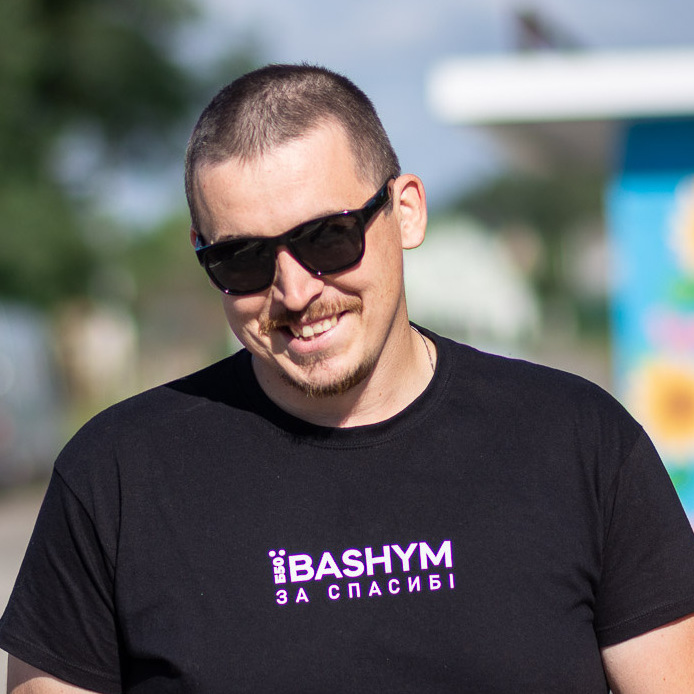
Read interview #heroesB50 with Ruslan Habdulov::
- why restoration volunteering is on time;
- what has changed in the activities of the B50 community since the first interview;
- the history of some of the B50 projects;
- mistakes made in volunteering and ways to correct them;
- whether there is a plan “B” in case of mobilization of all B50 men.
– We had a previous interview with you more than a year ago, in late June or early July, when you were making your first attempts to coordinate the B50 trips to Moshchun. We are currently making a second interview, in the fall of 2023. What has changed in your role at B50 since then? How would you describe your role for the volunteers and the organization now?
My role in the organization is to lead a small but growing project. I look for ideas for development, resources to implement them, build a team and processes, and do a lot of communication.
My role for volunteers is to make sure that everything works well and that volunteers don’t even notice that someone is organizing it. After all, well-established processes are invisible.
For example. To enable a team of volunteers to repair or decorate shelters for children, a lot has to be done: searching for applications, analyzing them; communication, reviews, negotiations; drawing up and finalizing estimates; developing and signing documents before and after the work is completed; and directly organizing volunteer trips. A separate branch of activity is fundraising, accounting, procurement, and logistics. Another branch is media coverage and reporting. All of this requires involvement, algorithm development, and coordination.
– Why is the issue of restoration important to you?
– It was a coincidence that I joined the B50 and this particular industry, because when the full-scale war started, I was looking for different areas of volunteering. However, later I realized how important restoration is, and how long process it is that requires long-term efforts.
– In 2022, about a hundred B50 volunteers were coming to clean up the rubble on weekends. Now, in 2023, there are only dozens.Why do you think this happened?
– Obviously, civic engagement graph is not linear. It has its peaks, troughs, and plateaus. Crises, stressful situations, such as the occupation of Kyiv region in the spring of 2022, initially draw a lot of attention. With time, attention, interest, and enthusiasm wane. This is an absolutely normal process. This is not a unique problem for the B50 or Ukraine. It is a normal phenomenon for human psychology in particular and society in general.
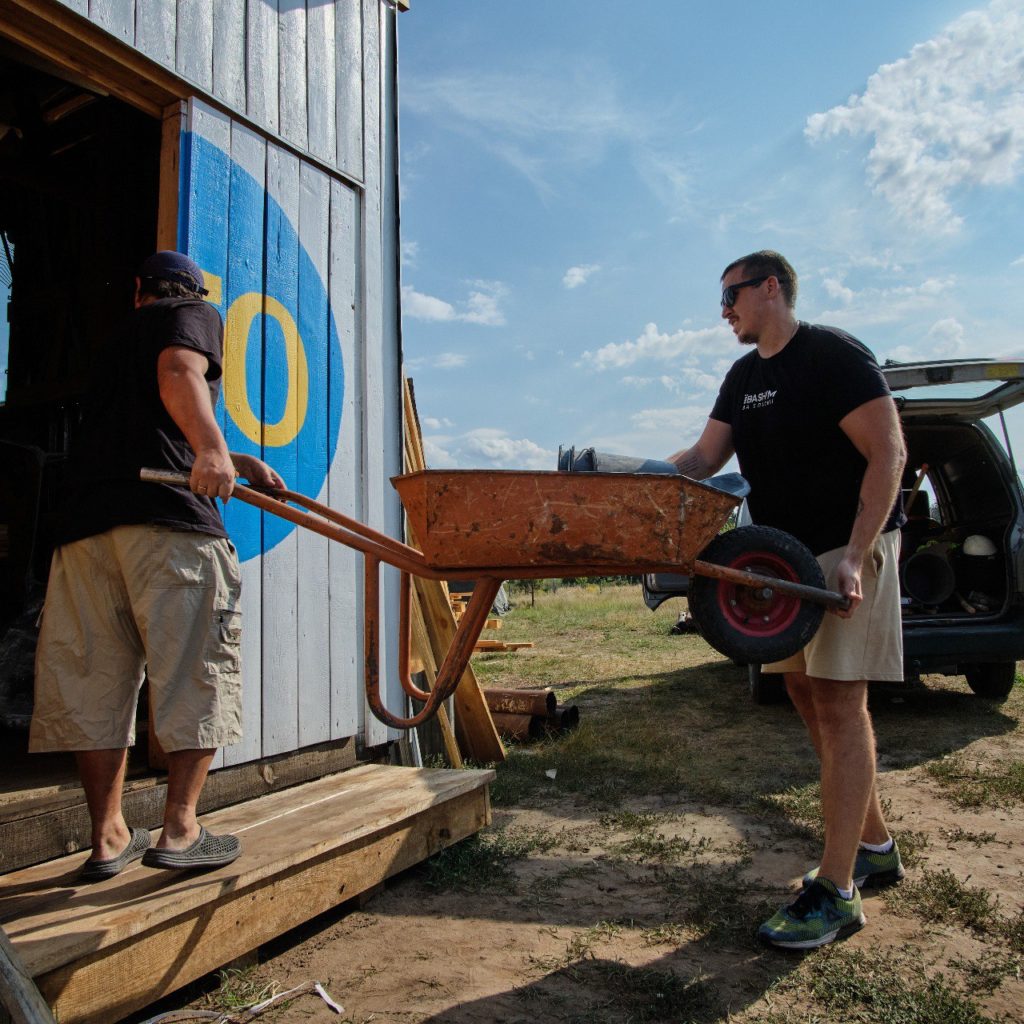
– Let’s have a look at the projects that B50 currently has. In total, we have 4 areas of activity. The rubble removal project that started B50 has transformed into the Clean Up! project. Volunteers still coming to Moshchun, Irpin, and other settlements in the Kyiv region to eliminate the consequences of the occupation. And most often they hear the question: “Haven’t you cleaned up everything there yet?”. In other words, we have been cleaning for a year and a half and still haven’t cleaned up everything. Why do you think that is?
– Because what one shell can do, several dozen people will have to clean up for several weeks. And there were a lot of shells.
Why haven’t all the rubble been removed yet? Obviously, the format we work in, is slow. This is a job for years.
– Perhaps, in this case, we need to work on the pace? For example, to clean up with specialized equipment instead of volunteers?
– Ideally, that’s how it should be. Ideally, all this work should be centralized, and we are sure that someday it will be. But people whose homes are destroyed are not living in the future, they are living right now. That’s why we are doing what we can do. Right now.
– Perhaps, for B50 to be more effective, it would be better to focus on finding an excavator rather than recruiting a dozen of new volunteers?
– I believe that if we do have the money for an excavator, we’d spend it on something else where it will have a greater impact. However, we are currently working on one, let’s call it a middle solution.
– So you are saying that local authorities should spend money more efficiently, for example, on an excavator. But at the same time, you say that if B50 has such funds, they should be used for something else!
– In the context of our activities, this would be an irrational expenditure of funds. In the context of local authorities, which often have relevant equipment available in their balance, it would not. I believe that one of the areas of our activity in the medium term should be, among others, arguing for this position or finding other effective solutions.
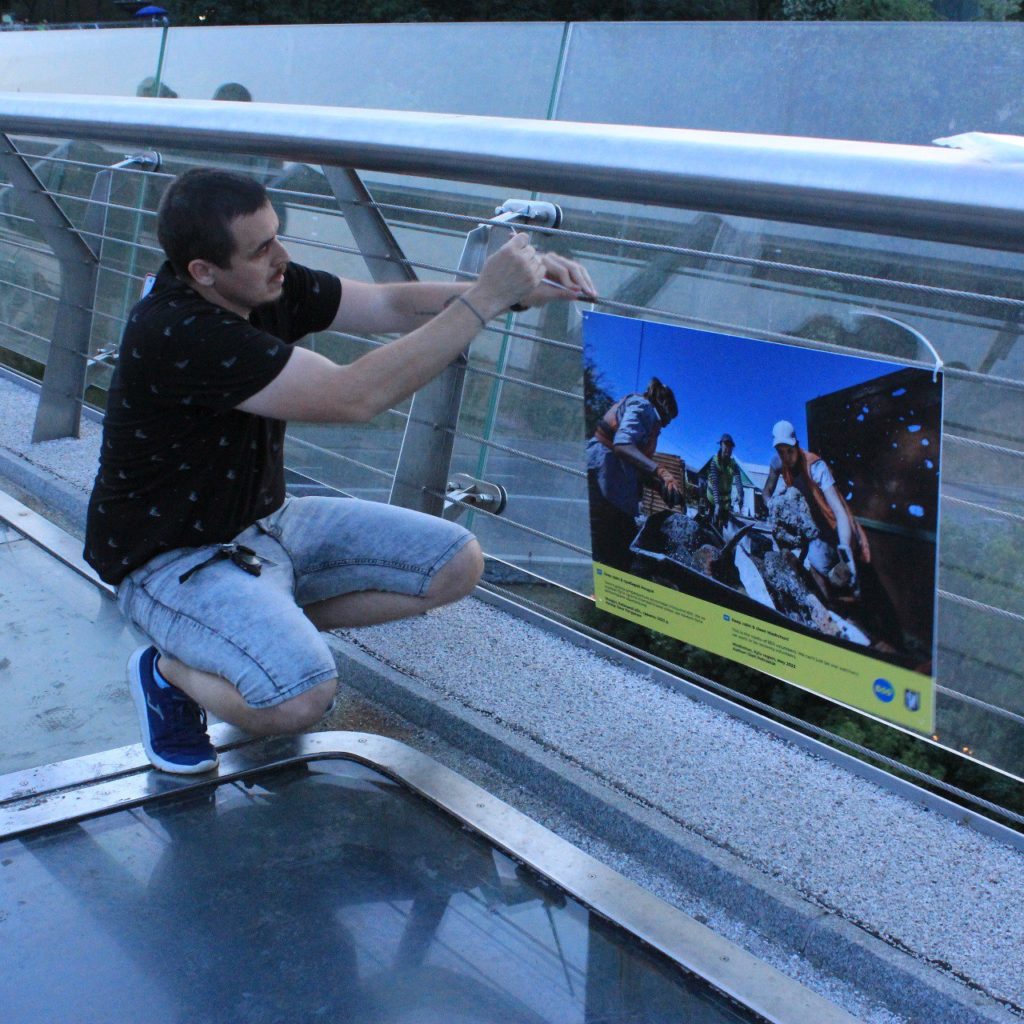
– In addition to Clean Up!, B50 also has the Shelters projects, P.AGE, Fluffy Sunday, and a number of educational and media projects. Don’t you think this is a defocusing of B50’s activities? Maybe these resources should be used to improve interaction with the authorities, clean up Moshchun or other villages?
– We manage all our projects in a way that separate team can work on each of them independently. It minimizes the dispersion of efforts, both mine and those of other people involved in running the organization as a whole. On the other hand, it creates synergies and a different scale of activity. We give our volunteers an opportunity to self-realize in different areas. A bonus is that some people who may get tired of one activity can switch to another and continue to do useful things with B50.
Through various projects, we diversify our competencies, ambitions, and plans. We see ourselves as an organization that works in an integrated manner, simultaneously developing several interconnected projects
– I would like to end the chapter about Moshchun with a question about the safety of volunteers. Could you please tell us how and why the safety requirements were revised?
– From the very beginning of B50’s work, we tried to take care of safety. We provided gloves, masks, helmets, goggles, etc. We have always provided these protective equipment to volunteers. Why have we started to focus on this much more actively now? As an organization, we are developing and maturing, and we expect the same from our volunteers. After all, the site where volunteers work is not much different from a construction site. For construction workers, safety rules are literally written in blood. I doubt that the anatomy of a person who does not receive payment for their work is any different, or that the laws of physics work differently in this case. Sometimes in Ukraine, the high level of health care in developed countries is perceived quite ironically. However, when it comes to the average life expectancy and quality, people are less likely to be ironic.
I have already said that reconstruction volunteering is a marathon, not a sprint. People in this community have to take care of themselves and also understand a certain responsibility for the process as a whole, because accidents will not help popularize it.
– But at the same time, no safety system can protect 100% from accidents. As far as I know, other volunteer organizations are not as concerned about safety as B50.
– I haven’t compared B50 to other organizations, but I think we really care about the safety of our volunteers the most. Some may not like it, but this is and will always be the policy of this organization. Let’s recall one tragic case. Here, a few blocks from the cafe where we are sitting, rocket debris killed people standing at the door of a closed bomb shelter. Was it possible to predict that this would happen sooner or later? Yes. Could measures have been taken to prevent this from happening? To keep the bomb shelter open? Yes. It happened otherwise. And only when it happened then they started to do something. I am however determined to work proactively. If we can minimize risks, we will do so. Regardless of what is practiced in other communities. After all, I’ve never been in the habit of focusing on the bottom line. “No one cares, so we will not care.” No, we won’t.

– What would you like to say to those people who continue to be negligent about safety?
– In our country today, there are far more relevant opportunities to demonstrate your fearlessness than risking your life and health by volunteering in a village near Kyiv.
– I’d like to talk about the Shelter project, which arose quite spontaneously at B50: a kindergarten in Bucha asked us to build a shelter. Later, this case grew into a full-fledged project. Did you think that the first accidental act would turn into a separate area of B50’s activity?
A year ago, it was a completely new experience for us. I was asked to arrange a shelter. I went to see the place. At first, this task seemed impossible because the site was in a terrible condition. But difficult challenges are interesting. We took on this project and, in my opinion, the result was excellent.
When we completed the first shelter project, we analyzed the situation and realized that there was a need to continue doing this.
– Do you remember when, after people died at the closed doors of a bomb shelter in Kyiv, inspections began and million-dollar thefts were discovered on shelter renovations? Do you see a risk that someone could steal money on the repair of shelters made by B50 but hide the fact that B50 has repaired the shelters at its expense?
– That’s a good question. We are constantly improving the way of analyzing the facilities we work with, taking into account our experience and trying to minimize such and other risks, as well as monitoring further news on them. I think that if this had happened, we would have known about it. Fortunately, there are currently no such problems with all the facilities.
– You have probably heard optimistic forecasts that we will return Crimea this year? I propose to imagine that the war ends in 2023. In your opinion, is it wise to continue repairing shelters in this case?
– I had similar thoughts in April this year, when there was a pause in missile attacks. After April it was May, when there was shelling almost every day. If the war ends in a month, russia collapses and disappears as a state, and the work we are doing now to build shelters turns out to be unnecessary, I will be very happy about that. But this scenario is only a possible one.
And there are others: the war will not end in September, October, November of this year, or in 2026. Or it will end, and in a few years it will start again, because this is not russia’s first war against Ukraine. And as long as russia exists, it will not be the last. Therefore, these shelters can save lives for many more years.
In the same context, we can talk, for example, about off-road vehicles: you can raise money for a car, and in 2 weeks it should be at the frontline, and in 2 days some internal problems will start in russia (and we have already seen the announcement), we will quickly free our land, and this car will become unnecessary. This may or may not happen, so all the work has to be done until it definitely becomes unnecessary.
In addition, schools often use shelters as classrooms, gyms, etc. This will be an additional useful space.
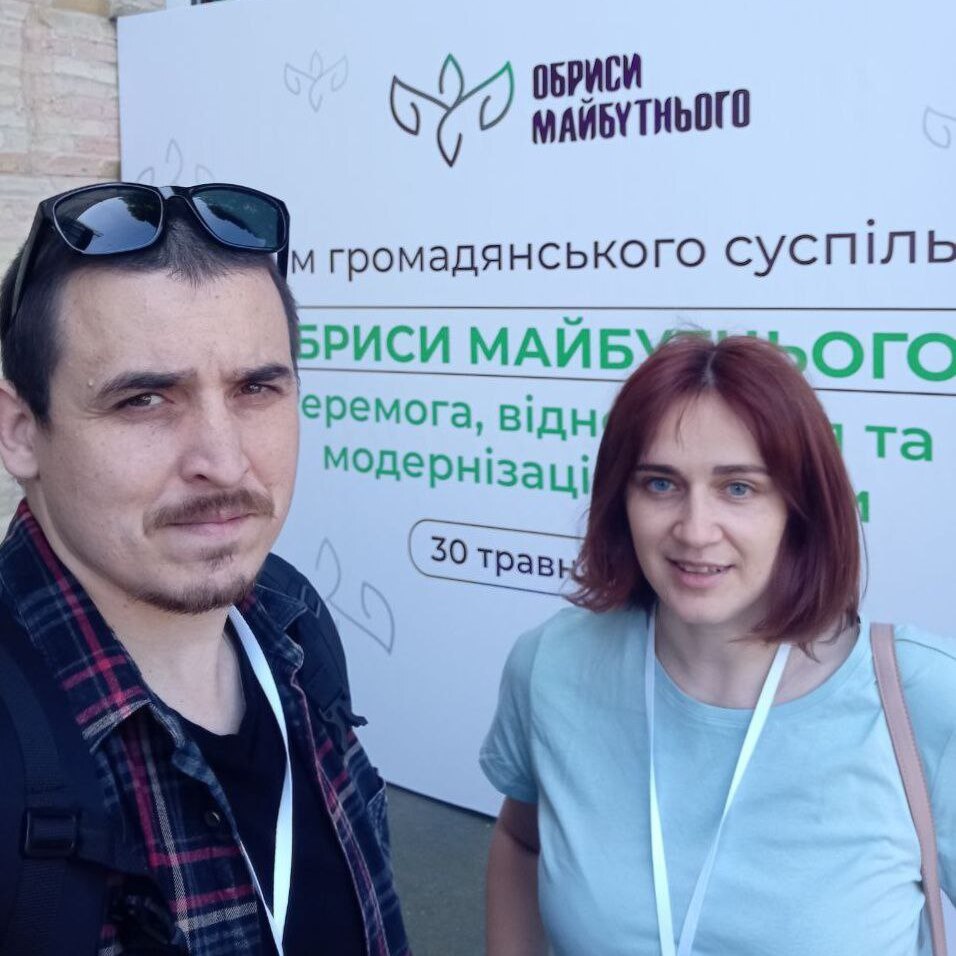
– And what are the average costs for B50 to repair shelters?
– 30-70 thousand UAH. Why not one and a half million? Firstly, we do not have such funds now, so we are working on sites that are proportional to our current capabilities. Secondly, I doubt the feasibility of perfect repairs in shelters, unless they are immediately equipped as full-fledged multifunctional facilities. In other cases, the high costs, in my opinion, are not proportional to their functions. Of course, with unlimited resources, you can make endless improvements. But resources are never unlimited.
– May be, instead of children’s shelters, we should build shelters in the houses where, for example, our volunteers and other families live?
– Literally only a few families go down to any shelter in any building, although theoretically everyone should be in shelters. Adults make their own decisions about where to be during an alert. Children in educational institutions do not have such a choice, or at least it should be so. And during their formative years they should not be in a dark, moldy place in a stressful situation with rats lying here and there. Never at all and under no circumstances. That is why I believe that our task is to arrange a safe and comfortable space for children.
So again, it’s a matter of efficiency of efforts.
– B50 has another major project with a target audience of children – P.AGE. Many people did not understand how it came about, as this project is somewhat at odds with the first two areas of B50’s activities – Clean Up! and Shelters. In your opinion, how does the P.AGE project fit into the B50 concept? How and why did it come about?
– B50’s concept is to restore the communities affected by russia’s great war in Ukraine. Reconstruction, security, and development of communities, particularly children, all fit perfectly into the concept of our organization. When viewed from the outside, the combination of these projects may not seem obvious. But, if you look at it through the prism of our concept, all projects are logically connected.
Talking about the project. It may sound unexpected, but for me it is not about books or children, but about tools and their impact on shaping the minds of those who will form the basis of Ukrainian society in a few decades.
Many organizations and activists donate books to school libraries. If we wanted to do the same, we would put boxes in shopping centers labeled “Books for Children of Liberated Communities” and collect two to three thousand books in a month. Perhaps some of them would even be interesting to children. However, this project has a completely different idea and different performance indicators. During this time, we have handed over only a few hundred books, having put a lot of effort into it. But these are not just any books – we selected those that can help the readers to learn about the world, themselves and their environment, and find their ultimate calling.
– Do you think this project could be made more open to volunteers? For example, to involve them in the purchase and transfer of books, such as “send us a book from the list and we will transfer it to the library.”
– We recently had an interesting case in which we were contacted by a company that wanted to support our project as part of its corporate volunteering. They took a list of books (by the way, they later spoke favorably of it), some of which were purchased by employees and some by the company. We really like working in this format because we insist that books should correspond to the list we have made.
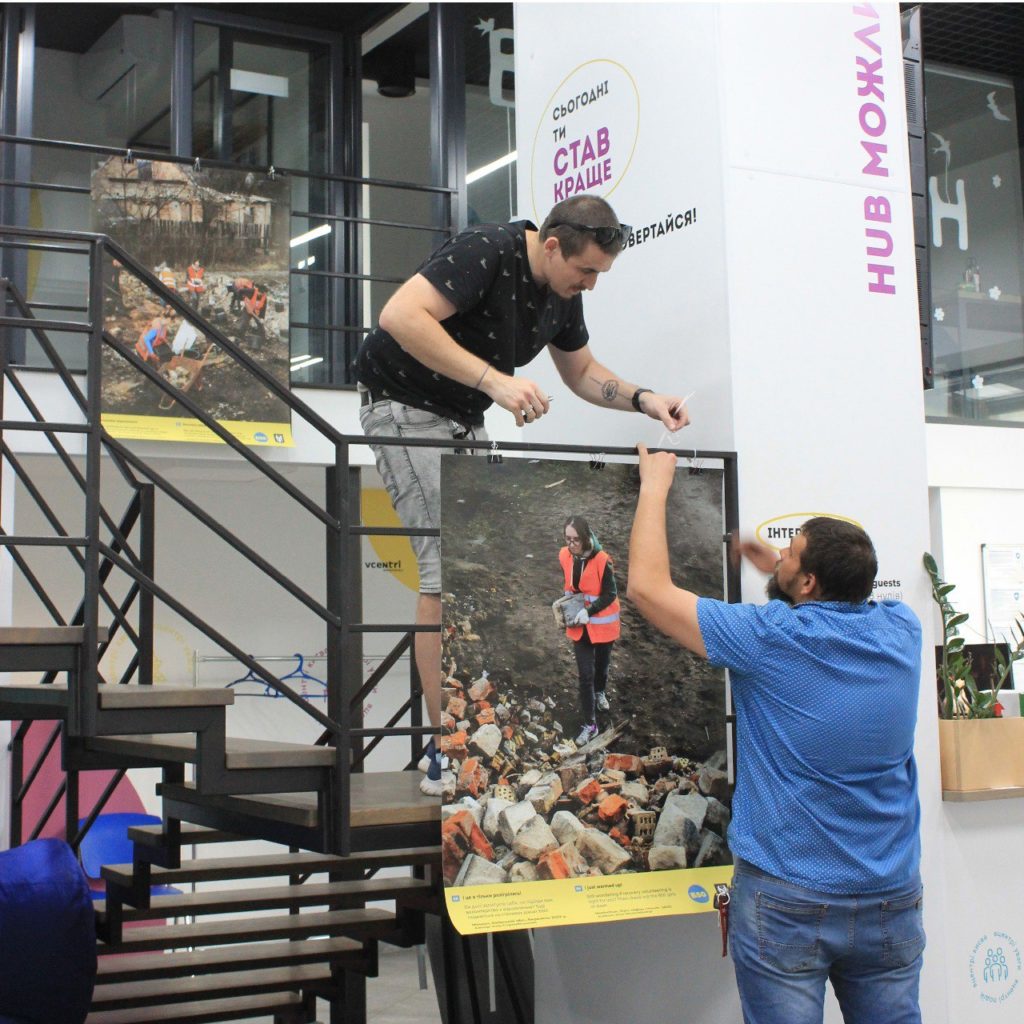
– And if someone has some good books in proper condition at home, may they pass those on to you?
– They may. We have already received such books and donated these to libraries as a bonus to the main list. In addition to books, we also donated board games.
In short, if it’s a book in Ukrainian, intended for children, new or in very good condition, and relatively recently published, we will gladly accept it.
Why is it important that the books to be published after 2004? Because they are relevant to the modern context, bright and interesting, often with illustrations or printed on fine paper – you want to hold and read such books, after all, reading popularization is one of the secondary goals of the project.
– At the first stage, P.AGE delivered books to only one library to test the system, the list of books, the approach, and the format. At the second stage, funds were being raised to purchase and deliver books to five libraries (and in fact, thanks to the involvement of volunteers, we managed to deliver books to seven of them). The next step is to reach 50 libraries. Isn’t it too ambitious a leap? How do you plan to achieve it?
– For the third stage of the project, it will not be possible (and we did not plan to) raise funds through fundraising among our volunteers. I would like to remind you that the first two stages were planned and implemented mainly with our community resources. In particular, the goal was to make sure that we could implement this project and organize the processes.
The third stage is much more extensive, and we plan to attract resources from foreign donors to implement it.
We currently have about 350 requests from libraries for books. We are talking about different regions of Ukraine, but we focus on the south-eastern regions because they need Ukrainian-language literature, de-russification, and reducing the effects of russian narratives and occupation. Most applications are from Donetsk region, Mykolaiv, Zaporizhzhia, Kherson regions, and others. However, we plan to work with all regions. For example, we have already received applications from Zakarpattia and Bessarabia, where, although there was no russian occupation in this war, there is still a need for a certain “injection” of Ukrainization, because they have their own problems with it. In particular, in some regions, “other countries” are working to create/strengthen their cultural space and narratives, which also needs to be countered. After all, the entire territory of Ukraine can be broadly defined as the de-occupied territories.
This means that the P.AGE project can be scaled up to all libraries in Ukraine, if only we have the resources. It can also work continuously, as new high-quality books are regularly published, and we can transfer them to the libraries we already cooperate with. For example, in addition to our 50 books, we can send another 5-10 books every year. Of course, with time, the state authorities will cover certain slots. But most likely it will be textbooks and classical literature. But it is unlikely that libraries would receive this kind of additional creative literature in large quantities in the near future. Therefore, we can cover this shortfall as part of the P.AGE project.
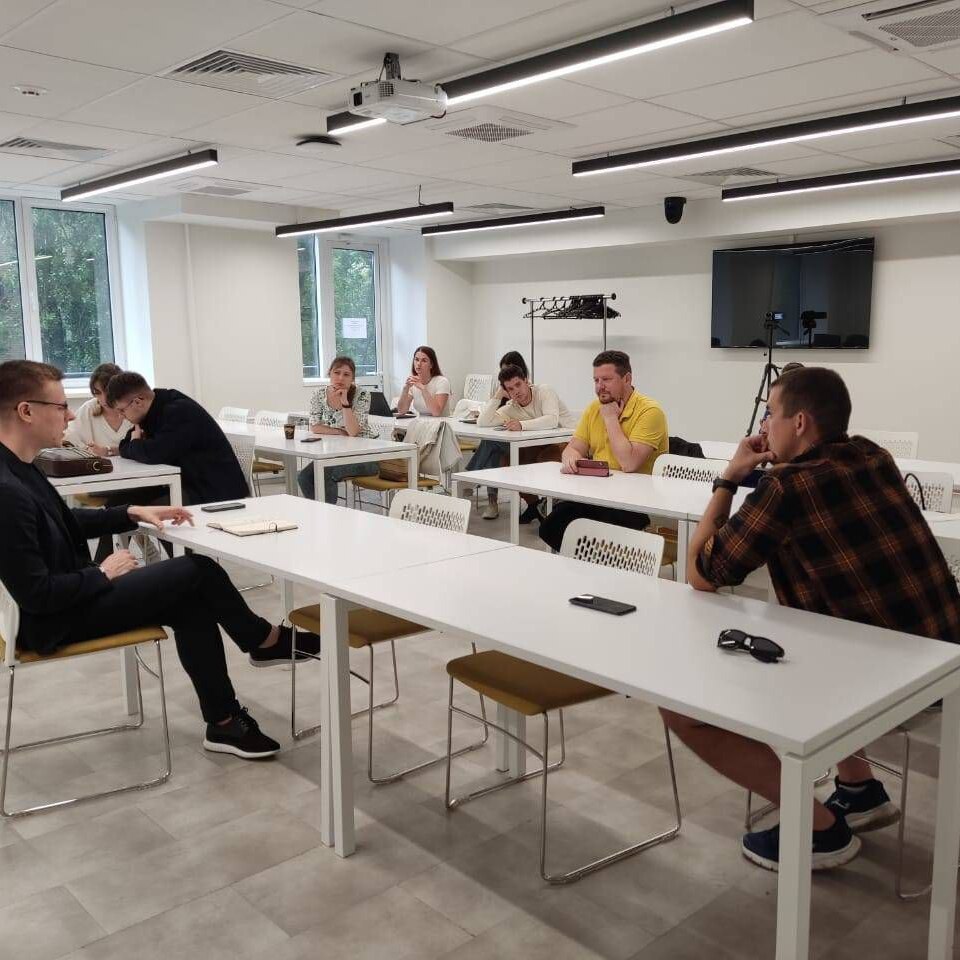
– How do you feel about the stereotype that nowadays children don’t read much? And does this prejudice affect the understanding of the P.AGE project?
– This stereotype is at least a hundred years old. In a broader sense, it’s about books in general. But book publishing has always existed. For example, Harry Potter still sells millions of copies around the world.
It seems to me that the stereotype was formed and maintained by adults who do not read and do not offer their children interesting books. When we delivered the books to the first library, I saw the reaction of the children, their sincere interest and desire to be the first to take the book and look at it. I was convinced that we were doing everything right. The first books we delivered to a village not far from Kyiv, where children had already seen something in their lives. And if we are talking about a village in the middle of the steppe somewhere in the Kherson region, which was affected by the war and still has no reliable communication, electricity, or the Internet, but where many children live, then paper becomes one of the few sources of information, knowledge, and development.
– B50 has recently added another major area of activity – the Country of Volunteers programm. Please tell us more about it.
– At the beginning of this conversation, I said that there are peaks, troughs, and plateaus in interest in volunteering. If we want to be proactive, not just consumers in the volunteering market, but want to create sustainable traditions of volunteering, helping and caring in Ukraine, one of the missions of our organization, which plans to work not as a “fire brigade” to solve individual problems, but in the long run, to provide assistance systematically, for the future, is to popularize volunteering. We are trying to shape public opinion in the area we work in. We hope that over time, volunteerism will become unnecessary, but the habit of solidarity will remain in society.
– What projects can we expect from the Country of Volunteers?
– For a year now, we have been publishing interviews with our volunteers. This has been followed by a photo exhibition in Kyiv and other Ukrainian cities. Recently, another photo exhibition has been launched, an international one. We also organize corporate volunteering. These are the projects we are working on now and will continue to work on in the future. Perhaps some more ideas will be added.
This work is interesting because we can do it both in Ukraine and abroad. For example, an international exhibition gives us the opportunity to realize several of our goals: to popularize the B50, to raise funds and partners for our organization’s projects, and to tell people what Ukraine is, who Ukrainians are, and how we live now. When we negotiate with foreign partners, they see our aspirations and confirm that there are a lot of russian narratives and false information about Ukraine in the world. Instead, we show that there are people in Ukraine who help, who make their own small contributions to reconstruction and development, who do not wait for the UN, UNICEF or any other organization to come and do good things in Ukraine with European, US and other taxpayers’ money. We are showing that Ukrainians get together in their free time and do what they can do.
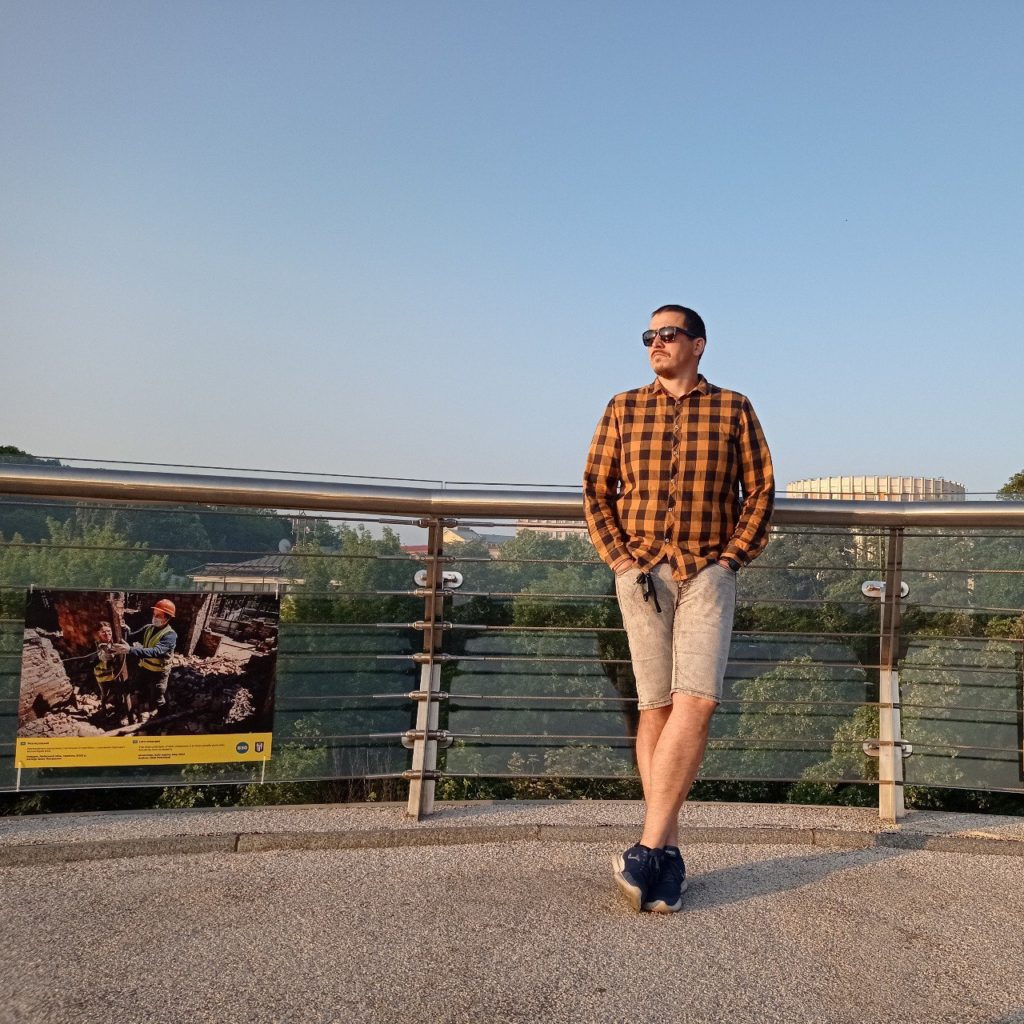
– We talked about a lot of B50 projects that are already working as a system. There must have been projects that failed. What was it and why didn’t these projects make it past the idea, test, or first stage of implementation?
– I only may recall one project that didn’t take off – a training project. We planned to build a structure of trainings for the development of volunteers and civil society in Kyiv, as well as field trainings for communities in the de-occupied territories that would help them acquire useful skills and competencies. We tried to implement several trainings, but later abandoned the idea. Or rather, we froze the project until better times.
This happened because we realized that we did not fully understand what to give to people and did not have enough administrative resources to implement this project well. If we see that we are not able to carry out the project and/or cannot implement it well, we abandon it. Instead, we focus on what we do well.
– Nowadays, people choose where to donate every day. In your opinion, what is more important: civil reconstruction or support the army?
Everything is important. However, there are many people and organizations that, for various reasons, are ready to donate only to humanitarian projects. From the very beginning of my participation in the management of B50, I set a goal to build the organization so that it would work with a focus on raising such funds. And we are following this strategy.
– What do you think you’re not doing well in B50?
I am very critical of my work. In particular, we are still not proactive enough in fundraising. If the community had more money, our projects would move forward much faster. Changes in this direction are a goal for the next 3-6 months.
In general, I like what we have achieved over the past year, given that we did it with few human and financial resources. But I also see room for development and improvement.
– Have you made any outright mistakes during your time at B50?
– A big mistake was that I stayed too long in the role of coordinator and participant of volunteer trips. It gave me personal satisfaction, but it took a lot of time that I did not invest in the development of the organization.
– What do you think are your personal qualities and character traits that hinder the progress of B50?
– Up to a certain point, my excessive emotionality, which stemmed from the fact that I took the organization’s growth too personally, got in the way. This was detrimental to the organization, the people in it, and ultimately to me. But I learned my lessons, and now this passion is working for progress.
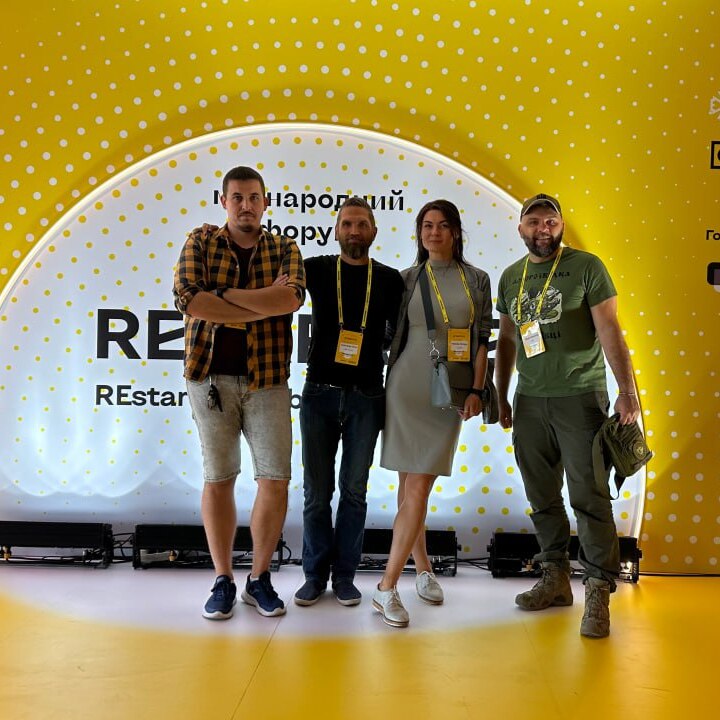
– You mentioned your excessive emotionality. In February 2023, you were close to leaving B50. A few days later, you changed your mind. By excessive emotionality, did you mean this incident?
– No, although some emotions were indeed the trigger here, it was not an emotional act in general. It was a balanced decision that I made, as it turned out, based on false beliefs. For example, I thought I had given this project everything I could. The background was personal problems and emotional burnout, which is common among volunteers. But after a few days passed, I had the opportunity to talk to different people and realize that I had made the wrong decision, looking at everything from the other side. It was hard to admit my mistake, but I am proud that I was rational enough to correct it, and not hold on to it in order not to “lose face.”
– B50 is developing: there are projects and plans. But all this may come to an end if the team’s men are called up for military service. How can B50 protect itself from losing you, for example?
– I think this is the most comfortable scenario possible. We will have enough time for transition and redistribution of functions and powers. This is not a significant risk for the organization, particularly taking into account the fact that the majority of our team is women.
More significant are sudden risks. A blood clot or a truck on the opposite lane. Because it’s a moment – and that’s it, the person is dead. Probably, to minimize the impact of this risk, it is worth creating some kind of protocol and decision system.
– You’ve been attending a lot of forums, events, etc. Is it to flatter your ego?
– Absolutely not, I don’t like such events, and it’s definitely not what my ambitions are. It is an opportunity to learn what is happening in our line of activity, to see trends, to communicate and exchange experience with people who share similar values, experience and expertise. In the end, we are also asked for expertise in the areas we work in.
think that providing expertise and advocating the interests of aid beneficiaries will be another area of B50’s activities.
– Is there anything you don’t like about volunteers?
– There are traits that I don’t like in people in general: irresponsibility, a tendency to populism, and criticism for the sake of criticism.
Personally, I would like the volunteers of our projects to become part of the team, to get more involved in the progress of the organization, to take some responsibility for its development. After all, volunteers come and go, passing this “baton” to the next people, and the organization remains and must remain so that these new people have a place to come and someone to administer their work.

– So who is more important – the volunteers or the organization?
– I suggest looking at this from a slightly different and deeper perspective. Who are the beneficiaries of organized volunteer assistance? The simple answer is the people we help. But who are the stakeholders in this process in a broader sense? There are at least three groups of actors here: beneficiaries (who get helped), volunteers (who fulfill their willingness to help and some other motives), and the organization, which through this process gets its development to be able to implement more complex and large-scale assistance projects. Neglect, as well as the dominance of someone’s individual interests, is unacceptable.
– You mentioned that interest in volunteering has an undulating nature. When do you think there will be another surge in interest in volunteering?
– I hope there will not be. Clearly, peaks occur after some disasters. For example, the previous surge of interest in volunteering occurred after the Kakhovka hydroelectric dam was blown up. Of course, if a rocket falls on a village near Kyiv, three times as many people will come to eliminate the consequences as usually. But this is a bad solution. In May 2023, we separated our reconstruction volunteering projects into a specific program. Ukrainians are the most proactive in volunteering, and we want to support this energy so that it becomes part of the normal behavior not only in times of crisis but also in the long term, because rebuilding Ukraine is not a sprint, but a marathon. A good example is blood donation. Tragic accidents cause queues at blood centers. Afterwards, it’s quiet. But blood is always needed. Therefore, there are initiatives that promote systemic donation as a habit. We do the same in our field.
– Don’t you resent the fact that some people only start volunteering after they have experienced some kind of grief, while you and the B50 team help without such critical triggers?
– No, I don’t. All people are different: everyone has their own life and priorities. I don’t think I have the moral right to condemn someone who devotes less time to this than others. After all, there are different ways to join our team. Everyone contributes as much as they can.
Interview recorded in September 2023.
The interview team:
- Interviewer – Nataliia Hryniuk
- Transcriber – Maria Naumchyk
- Editor – Svitlana Rudokvas
- Translator – Bohdan Holovchenko


